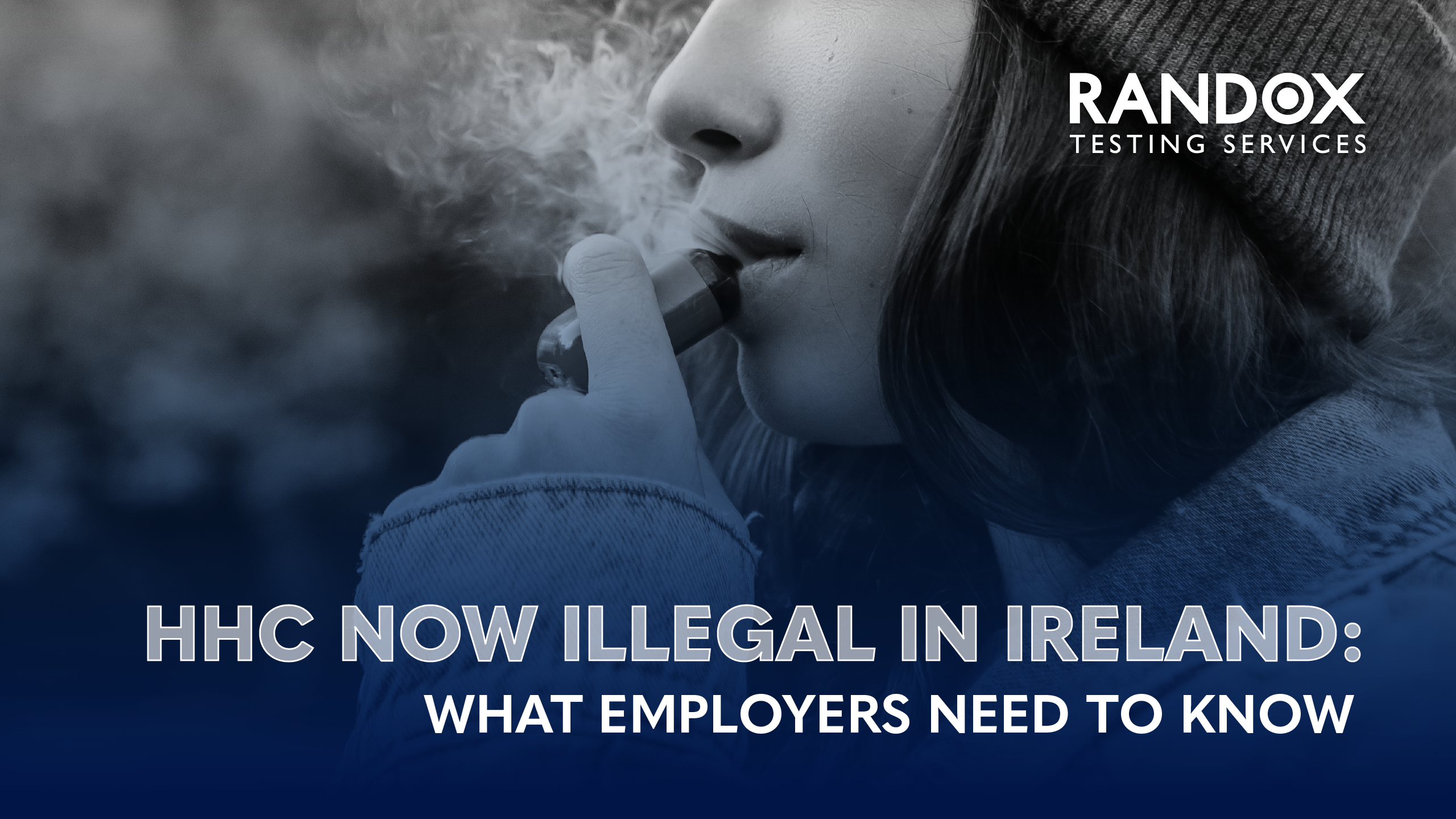HHC Now Illegal in Ireland: What Employers need to know

A major update in Irish drug legislation has just come into effect.
As of 29 July 2025, the Irish Government has confirmed that Hexahydrocannabinol (HHC) – a psychoactive cannabinoid often found in vapes and e-cigarettes – is now illegal to possess, produce, import, export, sell, or supply in Ireland.
This change has serious implications not just for individuals, but for employers managing drug and alcohol policies in the workplace.
What Is HHC and Why Was It Banned?
HHC (Hexahydrocannabinol) is a semi-synthetic compound, chemically modified from CBD. Over the past year, HHC has surged in popularity especially among young people as a “legal high,” often sold in vape form.[1]
But legal doesn’t mean safe.
Despite being marketed as a harmless alternative to cannabis, HHC has been linked to worrying health effects, including episodes of psychosis and even hospitalisation in some users.[1]
Following advice from health experts and monitoring agencies, the Irish Government has taken the step to ban HHC outright.
What Does This Mean for Employers?
For businesses across Ireland, particularly those in safety-sensitive industries, this development isn’t just a legal issue — it’s a workplace safety one.
At RTS, we’ve been monitoring HHC as part of our workplace drug testing programmes since early 2025, in anticipation of potential legal changes. We recognised early on the need to prepare employers for the possibility of a ban. Now that the law has officially changed, it’s essential that organisations are ready to respond appropriately.
✅ 1. Update Your Drug & Alcohol Policy
HHC is now a controlled substance. Review your documentation to ensure that this controlled drug is covered by your policy. Unsure where to start? RTS offers expert policy review services to help you stay compliant.
✅ 2. Reinforce Your Disciplinary Framework
Employers now have a clear legal basis to take action against employees found using or possessing HHC in the workplace. This includes enforcement of disciplinary procedures where applicable.
✅ 3. Be Proactive — Not Reactive
Knowledge is power. Now more than ever, it’s important to educate your workforce about this new law, the risks associated with HHC use, and the potential career consequences of misuse.
How RTS Can Help
At RTS, we’ve been ahead of the curve — offering HHC detection as part of our workplace drug testing panels since the beginning of the year.
We can help you:
– Review your documentation to ensure that HHC is covered within your policy
– Revise your policies to reflect this legal update
– Train your managers to spot signs of use and handle results confidently
– Support your HR team with expert guidance and resources
Get in Touch
Need support reviewing your drug and alcohol policy? Concerned about how this change may affect your workplace?
Contact us today:
Email: testingservices@randox.com
Phone: +44 (0) 28 9445 1011
LinkedIn: Randox Testing Services
Learn more about our services at: Randox Drug & Alcohol Testing Services
RTS is here to help you stay compliant, safe, and informed — because a safer workplace starts with the right information.
References
- Hickey, Emma. “Synthetic Cannabinoid HHC Has Now Been Classified as an Illegal Drug.” ie, TheJournal, 29 July 2025, www.thejournal.ie/hhc-banned-6776950-Jul2025/. Accessed 30 July 2025.